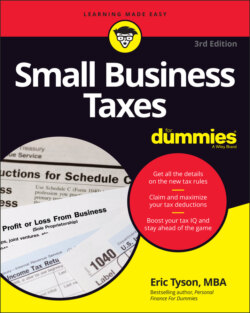Читать книгу Small Business Taxes For Dummies - Eric Tyson - Страница 69
Noting other ways to save on healthcare spending
ОглавлениеRegarding out-of-pocket medical expenses, you can offer a flexible spending or healthcare reimbursement account. These accounts enable employees to pay for uncovered medical expenses with pretax dollars. The business saves on payroll taxes for the amounts deferred into these accounts. Employees can also use these accounts to pay for vision and dental care.
Be forewarned of the major stumbling blocks you face when saving through medical reimbursement accounts:
First, you need to elect to save money from your paycheck prior to the beginning of each plan year. The only exception is at the time of a “life change,” such as a family member’s death, marriage, spouse’s job change, divorce, or the birth of a child.
You also need to use the money within the year you save it because these accounts contain a “use it or lose it” feature (you have through two and one-half months of the end of the calendar year to spend that year’s money).
Health savings accounts (HSAs) are another option, especially for the self-employed and people who work for smaller firms. Employers with fewer than 50 employees can offer HSAs.
To qualify for an HSA, you must have a high-deductible (for 2021, at least $1,400 for individuals and $2,800 for families) health insurance policy. Then you can put money earmarked for medical expenses into an investment account that offers the tax benefits — deductible contributions and tax-deferred compounding — of a retirement account. And unlike a flexible spending account, you don’t have to deplete the HSA by the end of the year: Money can compound tax-deferred inside the HSA for years. Begin to investigate an HSA through insurers offering health plans you’re interested in or with the company you currently have coverage through.
Finally, you may be able to save on taxes if you have a substantial amount of healthcare expenditures in a year. You can deduct medical and dental expenses as an itemized deduction on Schedule A of IRS Form 1040 (see Chapter 9) to the extent that they exceed 7.5 percent of your adjusted gross income for those under age 65. Unless you’re a low-income earner, you need to have substantial expenses, usually caused by an accident or major illness, to take advantage of this tax break.
